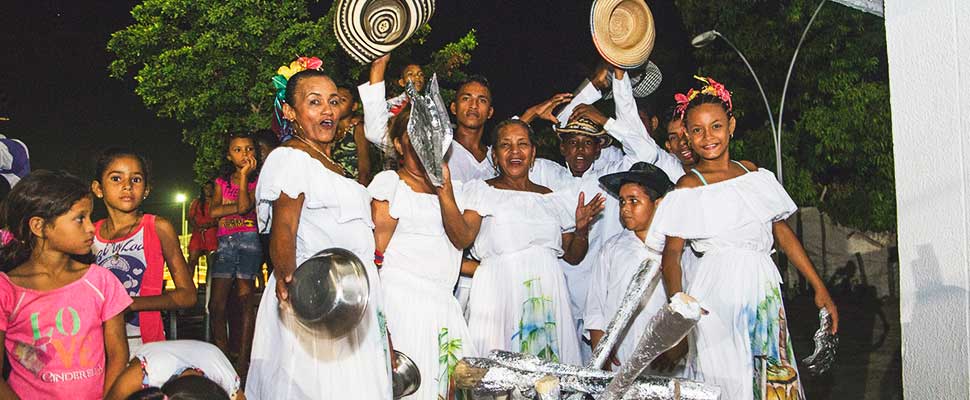International Day of Afro Women, To Preserve Their Origins and Rights
Since 1992, we have commemorated the International Day of Afro Latin-American, Caribbean, and the Diaspora Descendent Women as a result of the efforts of women in 32 countries in Latin America.

The Woman Post | Diana Sedano Valdes
Listen to this article
Since 1992, we have commemorated the International Day of Afro Latin-American, Caribbean, and the Diaspora Descendent Women as a result of the efforts of women in 32 countries in Latin America who met in the Dominican Republic to put a spotlight on the fights and resistances against ethnic discrimination, sexism, poverty, and marginalization.
In Latin America, the afro community represents more than a fourth of the population. Its majority inhabits Brazil, Ecuador, Colombia, Cuba, Ecuador, México, and Venezuela.
According to the last census in Colombia (2018), the black, Afro-Colombian, Raizal, and Palenquera population accounts for 4,671,160 people (50,1% are women), which corresponds to 9.34% of the total national population. However, ethnicity, gender, and social class are means of exclusion and violence in the country. If you are an afro woman, you have lower chances of accessing higher education programs or entering the labor market. In addition, the struggles caused by the armed conflict and the displacements have also contributed to a cultural rootlessness visible in the afro communities. According to Amnesty International, black women are nowadays more in danger than before. In the Caribbean region, several Afro communities suffer from the neglect of the State and must struggle every day to satisfy their basic needs.
In Chiriguana, Cesar, a collective of women leads the efforts towards a more sustainable environment and a cohesive community in a context of high violence for human rights defenders. "Las Mujeres Guerreras de La Sierra" (The Warrior Women of La Sierra) describe themselves as guardians of life and territory and are a social organization that emerged in 2013. They identify their origins in the colonial times of the Maroons. They have been fighting for their rights since, against slaves and landowners and, more recently, against open-pit coal mining in their territories.
Also read: SIMONE VEIL, HOLOCAUST SURVIVOR, A FIGHTER FOR WOMEN'S RIGHTS
“¡Sólo cuando se haya talado el último árbol, envenenado el último río, y pescado el último pez, sólo hasta ese entonces, dejaré de luchar!”
Large-scale coal mining has replaced agricultural activities in the communities and affected their quality of life. Land degradation and pollution of water sources affect the population directly; access to water and electricity in La Sierra is very limited. Furthermore, the interest of the authorities in the region exists mainly at electoral times. Therefore, part of the projects developed by Las Mujeres Guerreras seeks to avoid political manipulation and to eliminate the logic of dependency through the self-managed provision of primary community services.
Hay iglesias y organizaciones
de mujeres que luchando,
han sacado compasión,
y aún se dan la pelea,
por una vida mejor.
The Mujeres Guerreras want to preserve Afro traditions. They all have the desire to build forms of local autonomy, collectively, led by Black women. They exchange knowledge and practices with different environmental movements in the country, Germany, and Poland. Over the last two years, they have worked with the Red de Iniciativas Comunitarias (Community Initiatives Network) in projects on solar energy, community orchards and gardens, and the installation of water filters. They developed, with RICO’s support, both editions of the Cultural and Sports Festival of La Sierra in 2019 and 2020. In addition, the women of La Sierra also want to transmit ancestral knowledge in healing and agriculture to the upcoming generations. They have a deep knowledge of the properties and uses of the medicinal plants of the region. They are a referent of wisdom in their territories.
“La mejor herencia que podemos dejarle a nuestros hijos es amor, conocimiento y un planeta en el cual puedan vivir todas y todos en comunidad.”*
The Mujeres Guerreras are an example of resilience and perseverance. Thanks to their efforts, 80% of the community has access to purified water. They have also created safe spaces for women and expect to be able to install solar photovoltaic systems. Over the years, they have successfully created a joint savings scheme and a native seeds bank. They also plan to establish and strengthen a local Casa de la Mujer (Women's House). Thus, their actions have contributed to eliminate violence and bring cohesion to the inhabitants of La Sierra.
*Poems by The Mujeres Guerreras. This article was written with the consent of the Mujeres Guerreras and with the participation of the Community Initiatives Network (RICO).





